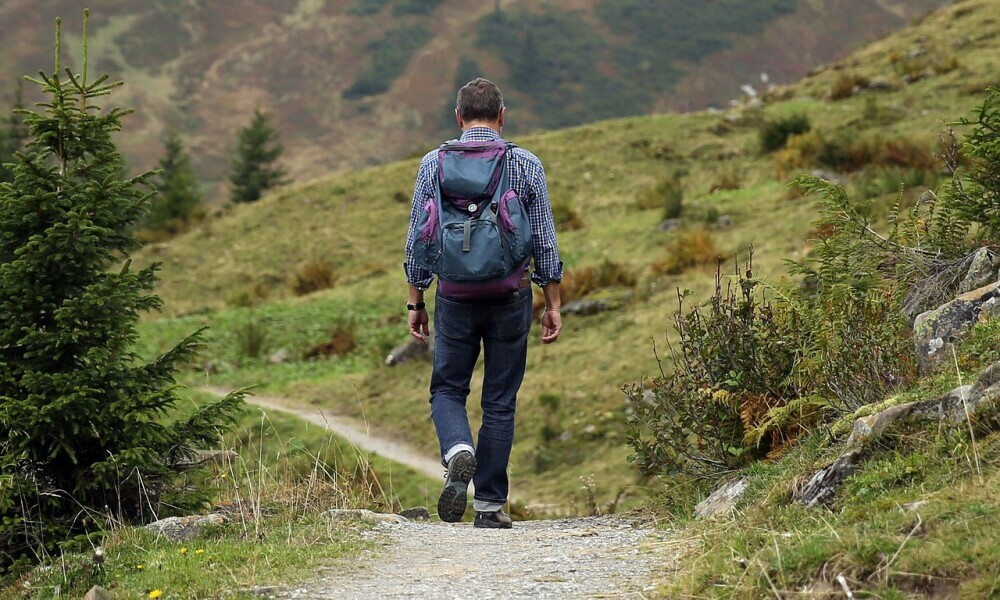**What To Pack For A Day Hike: Checklist**
 **Essential Gear for Every Trail: Your Day Hike Packing Must-Haves**
**Essential Gear for Every Trail: Your Day Hike Packing Must-Haves**
When gearing up for a day hike, it’s essential to strike a balance between packing light and being prepared for whatever the trail may throw your way. Here’s a rundown of the must-have items to ensure a safe and enjoyable hiking experience:
1. **Navigation Tools:** Never venture onto the trail without a map, compass, or GPS device. These tools are your lifeline if you wander off course.
2. **Hydration Options:** Staying hydrated is key to a successful hike. Carry an ample supply of water in a lightweight, refillable container. Consider bringing a water purification method for longer hikes with limited water sources.
3. **Calorie-Packed Snacks:** Fuel your adventure with lightweight, energy-dense snacks like trail mix, energy bars, and dried fruit. Aim for a balance of carbohydrates, protein, and fats to sustain your energy levels.
4. **Weather-Appropriate Clothing:** Dress in layers to adapt to changing weather conditions. Moisture-wicking base layers, insulating mid-layers, and waterproof outer shells are essential for staying comfortable on the trail.
5. **Safety Items:** Pack a basic first aid kit equipped with bandages, antiseptic wipes, blister treatment, and any necessary medications. A multi-tool, emergency whistle, and lightweight emergency shelter are also essential safety items.
**Personal Items Checklist: Keep Comfort and Safety in Balance**
In addition to essential gear, consider personal items to enhance your comfort and safety on the trail:
1. **Sun Protection:** Shield yourself from harmful UV rays with sunscreen, sunglasses, and a wide-brimmed hat. Don’t forget to reapply sunscreen regularly, especially in high-altitude or sunny conditions.
2. **Insect Repellent:** Ward off pesky bugs with insect repellent, whether you opt for chemical or natural alternatives. Ticks, mosquitoes, and other insects can carry diseases, so it’s essential to protect yourself.
3. **Toiletry Items:** Pack basic toiletries like hand sanitizer, toilet paper, and biodegradable soap for bathroom breaks on the trail. Consider eco-friendly alternatives to minimize your environmental impact.
4. **Personal Identification and Permits:** Carry a form of identification and any necessary permits for the trail you plan to hike. This ensures access and helps authorities locate you in case of an emergency.
5. **Basic First Aid Kit:** Be prepared to handle minor injuries and ailments with a compact first aid kit. Include items like adhesive bandages, gauze pads, antiseptic ointment, and pain relievers.
**Tech Tools to Enhance Your Day Hike Experience**
While some purists prefer to disconnect from technology while hiking, others find value in bringing along tech tools to enhance their experience:
1. **Essential Electronics:** Bring a fully charged smartphone for emergencies, navigation, and capturing photos. Consider investing in a GPS device for more reliable navigation in remote areas.
2. **Backup Power Sources:** Extend the battery life of your electronic devices with portable chargers or solar-powered chargers. Ensure your devices stay powered throughout the hike, especially if relying on them for navigation.
3. **Photography Equipment:** Capture the beauty of nature with a lightweight camera or smartphone equipped with a high-quality camera. Consider bringing a tripod for steady shots and a protective case to shield your gear from the elements.
4. **Apps and Online Resources:** Take advantage of interactive maps, trail finders, and hiking apps to plan your route, track your progress, and discover points of interest along the way.
**Practicing Responsible Hiking: Pack In, Pack Out and Beyond**
In addition to packing essential gear and personal items, it’s crucial to practice responsible hiking to minimize your environmental impact:
1. **Leave No Trace Principles:** Follow the seven Leave No Trace principles, which include disposing of waste properly, minimizing campfire impacts, and respecting wildlife.
2. **Waste Management Essentials:** Pack out all waste, including food scraps, toilet paper, and hygiene products. Bring along a sealable bag or designated trash bag to collect and carry out your trash.
3. **Respecting Wildlife and Natural Habitats:** Observe wildlife from a distance and avoid disturbing or feeding them. Stay on designated trails to minimize trampling vegetation and disrupting fragile ecosystems.
4. **Trail Etiquette:** Practice courteous trail etiquette by yielding to uphill hikers, staying to the right to allow passing, and keeping noise levels to a minimum to preserve the tranquility of the wilderness.
Conclusion
By packing thoughtfully, respecting nature, and practicing responsible hiking habits, you can enjoy a safe and rewarding day hike while minimizing your environmental impact on the trail.

